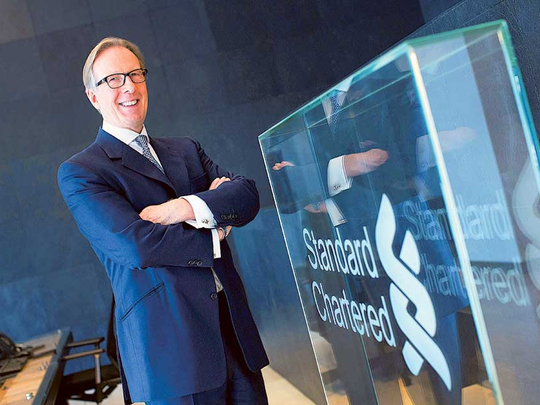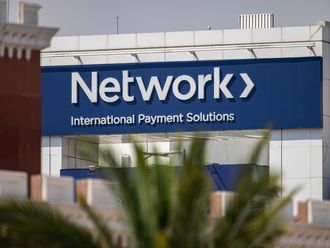
Dubai: For Standard Chartered, an international banking group with significant presence across emerging markets, the UAE is a key country in its new global and regional strategy, Julian Wynter, CEO of Standard Chartered in the UAE told Gulf News in an Interview.
Wynter a Standard Chartered veteran of 30 years sees UAE at the centre of the bank’s Middle East and Africa plans. Last year, as part of it global restructuring, the banking group put in place as new geographical structure consolidating its 8 regional businesses into four such as Greater China & North Asia, Asean & South Asia, Africa & Middle East and Europe & Americas.
Within the Africa & Middle East region, the UAE is the largest franchise and globally it’s in the top five among more than 70 countries where the bank has operations. Standard Chartered has been operating in the UAE since 1958.
“The UAE is a very important market for us. The bank is in the UAE for good and that is a deep and long term commitment. There are obvious reasons for this. The country is located in a fantastic part of the world with great infrastructure and robust regulatory environment. UAE’s great connections with Asia, Africa and Europe keeps it at the centre of our regional strategy,” said Wynter.
Following difficult market conditions in some of the world’s leading emerging markets where the bank operates, last one year has been a period of introspection and strategy revision for the bank at the global level.
Core Asian markets
The banking group returned to profit in the first half of this year earning $994 million (Dh3.6 billion). But the management has warned that the targets for improved financial returns will be delayed by economic weakness in its core Asian markets. The UAE and the oil exporters of the region too are facing economic headwinds from the prolonged low oil prices, putting pressure on economic growth and banking sector profitability.
“We are not new to this market. It would be wrong to say we have not been affected. In our commercial banking book we have seen some skips last year. It has become somewhat less in the last quarter,” said Wynter.
Leaving aside few stress points, Wynter is optimistic on the outlook for the UAE. “The important thing for me is that the economy is pretty resilient here. So our internal view is that the growth will be at 2.2 per cent this year. Actually we are revising it up to 2.6 per cent. The outlook is positive. It is a more diverse economy than some people think,” he said.
While he acknowledges the impact of reduced oil revenue on economic growth, banking sector liquidity and the cost of borrowings, the impact has been relatively muted on Standard Chartered’s UAE operations. The bank’s access to global liquidity pools has helped it to connect people with surplus capital with those in need of funds.
“Some of our transactions are the type where we have utilised our overseas network. Through capital market funding the bank is connecting a more diverse base of global investors to the UAE,” said Wynter.
Factbox: Profile
Julian Wynter, Chief Executive Officer Standard Chartered in the UAE has an international banking career spanning more than 30 years. He has led the bank’s Malaysia and Japan business as CEO and held several senior management roles in audit.
Prior to taking up as CEO in the UAE in November last year, Wynter was the Group Head of Internal Audit reporting directly to the Group Chief Executive Officer providing independent assurance to the management and the Board on the effectiveness of the systems and controls within the Bank.










